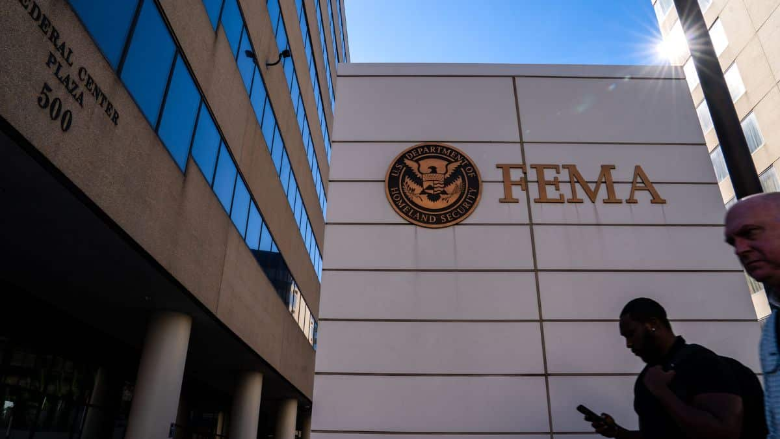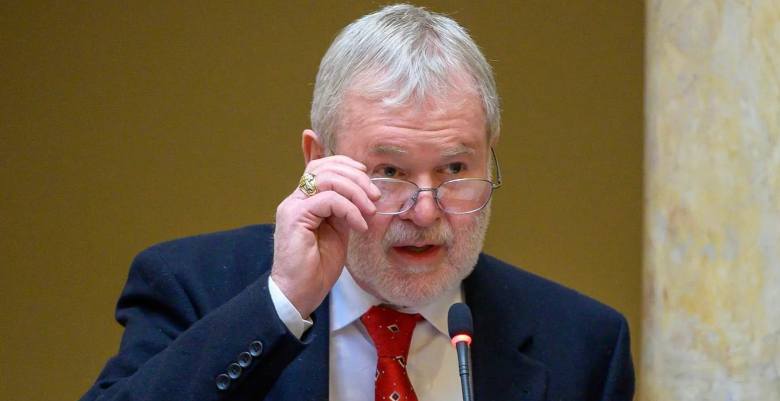The Biden-Harris administration’s Federal Emergency Management Agency (FEMA) has temporarily suspended relief efforts in parts of North Carolina due to alleged threats against federal workers. According to FEMA, certain operations in Rutherford County, which was hit hard by Hurricane Helene, were paused after reports of an “armed militia” surfaced. These reports, provided by the National Guard, claimed that the militia was allegedly threatening relief workers, causing concern for their safety.
In a statement released on Monday, a FEMA spokesperson explained the agency’s decision: “For the safety of our dedicated staff and the disaster survivors we are helping, FEMA has made some operational adjustments.” Despite the pause in certain areas, FEMA emphasized that Disaster Recovery Centers remain open, survivors can still register for assistance, and efforts to aid the people of North Carolina continue.
The halting of relief work in Rutherford County is not an isolated incident. Several communities near the borders of North Carolina, Virginia, and Tennessee have also reported suspending disaster recovery efforts due to perceived threats. Ashe County Sheriff Phil Howell confirmed that some relief centers, which were helping victims of Hurricane Helene apply for aid, had to close down. While no specific details about the nature or seriousness of the threats were disclosed, Howell urged the public to remain calm during the recovery process. “Stay calm and steady during our recovery, help folks, and please don’t stir the pot,” he advised.
The suspension of FEMA operations in these areas has raised concerns among locals, who are already grappling with the devastation left by Hurricane Helene. Residents who have been relying on federal assistance to rebuild their homes and lives are now facing uncertainty about when aid will resume in their communities.
The decision to halt relief efforts in certain areas has sparked frustration and confusion among many residents. In times of crisis, federal aid is often seen as a critical lifeline for those impacted by natural disasters, and the suspension of services, even temporarily, can cause delays in recovery.
Adding to the controversy is the lack of detailed information about the so-called “threats” that prompted FEMA’s decision. While rumors of armed militias have circulated, specific incidents or arrests have yet to be reported, leaving some to question the agency’s rationale. The decision has further polarized an already tense environment, with some expressing concern that the situation could escalate if federal relief workers feel unwelcome.
FEMA’s actions have not only drawn criticism from local residents but also from private individuals who have been working independently to provide aid. One notable critic is technology billionaire Elon Musk, who claims that FEMA has interfered with his efforts to bring emergency satellite internet access to the region.
Musk’s Starlink system, which provides satellite-based internet service, has been deployed in many disaster-stricken areas to help restore communication. According to reports, Musk alleges that FEMA’s bureaucracy has been slowing down the process of setting up Starlink services in North Carolina, leaving many without reliable communication in the aftermath of the hurricane.
The situation with Musk highlights growing tensions between federal agencies and private sector efforts to provide aid during disasters. While FEMA plays a crucial role in disaster relief, some argue that the agency’s protocols and red tape can sometimes hinder more immediate and flexible solutions offered by private companies.
In response to the criticism, FEMA has reiterated its commitment to assisting the people of North Carolina, despite the challenges. “Disaster Recovery Centers will continue to be open as scheduled, survivors continue to register for assistance, and we continue to help the people of North Carolina with their recovery,” the agency stated.
However, the pause in relief operations due to safety concerns has sparked a debate over how agencies like FEMA should handle situations where their workers feel threatened. While the safety of relief workers is paramount, critics argue that FEMA should find ways to navigate these challenges without halting vital services for storm victims.
The suspension of operations in North Carolina is a rare and troubling development for an agency that is typically at the forefront of disaster recovery. The situation serves as a reminder of the delicate balance FEMA must maintain between ensuring the safety of its workers and providing timely relief to those in desperate need.
As the recovery from Hurricane Helene continues, all eyes will be on FEMA to see how quickly it can restore full operations in the affected areas. The agency’s ability to navigate these challenges will be crucial in determining how soon North Carolina’s hardest-hit communities can receive the help they so urgently need.




Just an excuse to screw over N.Carolina residents that lost everything.